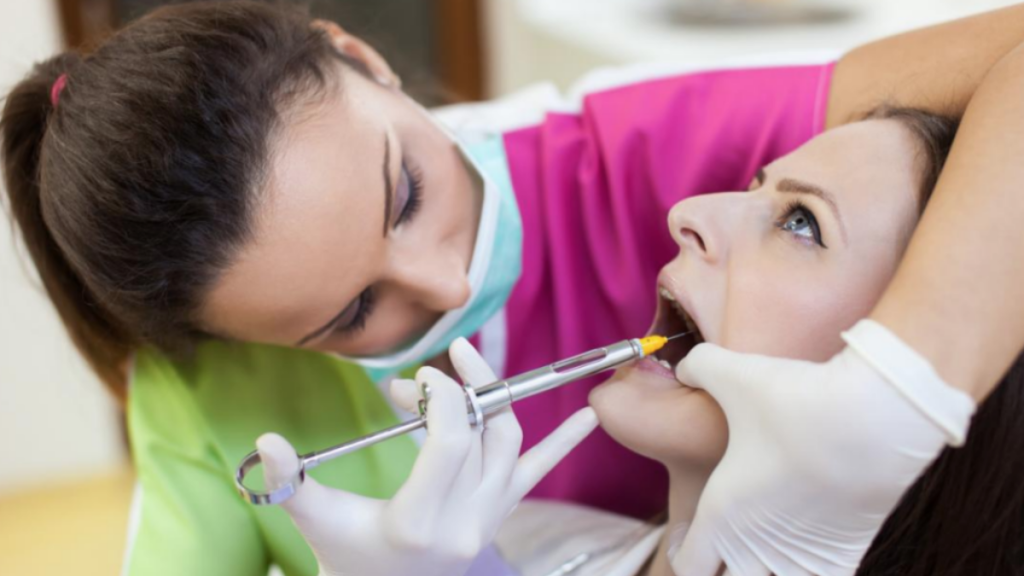A trip to a dental facility to undergo a routine root canal, filling, or any other dental procedure will most likely need the use of local anesthesia to numb the region, making the whole procedure painless. In many cases, the anesthesia used by a dentist will numb an individual’s teeth for about one to two hours. However, additionally, this will leave a patient’s lips, mouth, tongue, and face numb for another few hours. This condition can be frustrating, especially for those trying to return to normal life after the dentist appointment.
This calls for patience as the most common means to address the numbness. The numbness wears off naturally with time. Nonetheless, plenty of home remedies can go a long way in helping relieve the numbness. Before diving into the home remedies, it is essential also to understand precisely how long the effects of local anesthesia should last to avoid confusion when using home remedies.
Dental Numbness Should Last for this Long
Dentists use two main numbing agents on patients to prevent them from feeling pain during dental procedures, namely Novocain and Lidocaine. According to research from medical experts, the full effects of these numbing agents can last up to twenty-four hours. To many people, this may feel like an eternity.
But, typically, this kind of numbness starts wearing off after roughly three to five hours. If this extends, it may be appropriate to employ some remedies to help relieve the effects. But, unfortunately, it may not be a walk in the park when dealing with dental numbness, especially if one has to go back to work or their normal day-to-day duties.
The Side Effects Associated with dental Anesthetics
Some dental patients experience more than numbness when injected with local anesthesia. Patients can have strong reactions leading to mild or adverse side effects. These side effects include nausea, anaphylaxis, difficulty in breathing, irregular heartbeat, lethargy, headaches, and vomiting, among many others. These can be severe side effects, making it necessary for patients experiencing them after a dental procedure to contact their dental specialist.
The Top Ways to Get Rid of Numbness after Visiting the Dentist
The process involved in getting rid of numbness after the dentist often requires patients to be well hydrated for it to be highly effective. Having sufficient fluids in the body helps tone down the blood sugar levels, making it efficient in metabolizing drugs such as lidocaine. In addition to this, foods high in magnesium are highly recommended since they cause a more increased blood flow through the body.
Below are some of the ways to get rid of numbness after the dentist:
Massaging the Jaw
Gently massaging the face around the jaw region can help boost the circulation of blood after receiving anesthesia. In addition, it is recommended that patients use a warm compress to relieve the numbness after a dental procedure. A warm compress increases the blood flow within the affected area. On the other hand, a massage will increase the blood flow specifically to a patient’s face, lips, and mouth to stimulate circulation.
It is equally important to follow all hygiene protocols before massaging one’s face. Such include washing and sanitizing hands before massaging the face.
Increase Physical Activity
According to medical research, physical activity is crucial for overall well-being and health. Increased physical activities are known to improve healing times as well as promote circulation. Furthermore, it increases patients’ metabolism making the body process anesthetics faster.
However, patients need to ask their dentists if it is safe to partake in any physical activity after the completion of a dental procedure.
Having Sufficient Rest or Taking a Nap
Some patients might have prolonged numbness long after the dental procedure is completed. As much as this can be irritating, choosing to take a nap or have plenty of rest can come as a huge relief. This will help patients push time, and once they wake up, the adverse effects of numbness will have subsided, if not disappeared.
Exercising Patience
They say patience is an art that many fail to achieve. However, patience can play a vital role when getting rid of dental anesthesia numbness. Different types of local anesthesia have a different amount of numbing medication. Several factors will also dictate how long the numbing effect will last. Such factors include age, weight, body metabolism, sex, and physical fitness, among many others.
With this in mind, patience is the most effective way to get rid of numbness after the dentist visit.
Reverse Effect Injection
Some dentists prescribe an injection that can reverse the numbing effects of the local anesthesia used. This injection is known to help dissipate the dental numbness twice as fast compared to waiting for it to wear out naturally. However, this is usually an optional choice, and it is not recommended unless the numbness has severe effects on a patient.
On the other side, this reversal injection can have adverse side effects on some dental patients. These side effects could range from mild to adverse. These side effects include low blood pressure, irregular heartbeats, nausea, muscle aches, and headaches, among many more. Therefore, patients visiting dentists must discuss any history of heart-related diseases before receiving the reversal injection.
In conclusion, dental numbness can be a burden for most people who need to regain their normal life as soon as the dental procedure is done. However, due to the amount of time it takes for anesthesia to wear out, it can be an uphill task trying to wear off the effects of local dental anesthesia using home remedies and medical remedies. On the contrary, these remedies have proven to help mitigate the adverse numbness effects associated with dental procedures, offering immense relief to patients. Special care must be given to patients who have a history of cardiovascular diseases when the medical remedy of getting rid of dental numbness, reversal injection, is used. This will help avoid severe medical cases from happening.

